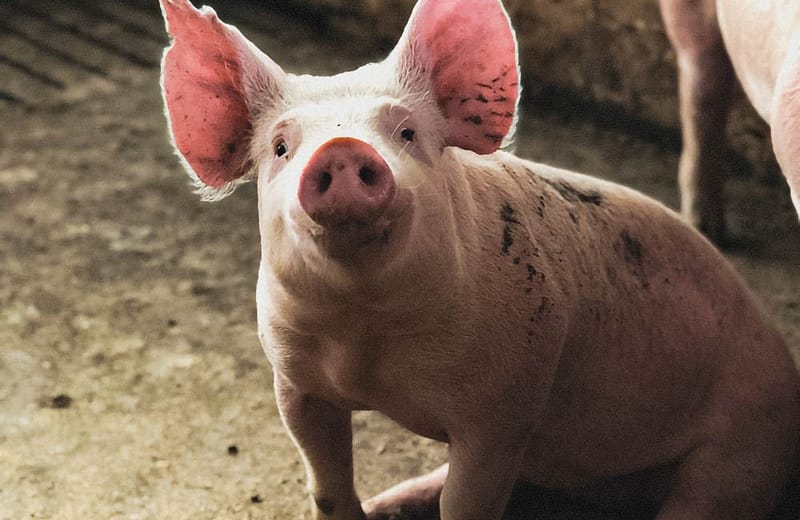Pig Health & Supplements

Understanding Pig Health and the Role of Supplements
Pig health is paramount in maintaining a successful swine operation. Like any animal, pigs require unique care and attention to ensure their well-being and maintain productivity and ongoing health.
One integral aspect gaining increasing attention in pig health management is gut health. The gut plays a crucial role in pig health, as it is responsible for digestion, nutrient absorption, and immune function. Maintaining a healthy gut microbiota is essential for supporting overall pig health and performance.
Priority IAC has a variety of supplements specifically formulated for swine. Our products contain scientifically chosen Smartbacteria™, and every strain plays a key role in helping support your hog’s digestive system and immune health.
Common Pig Health Concerns
Like all animals, pigs are susceptible to various health issues that can affect their growth, reproduction, and overall performance.

Foot and Mouth Disease
Foot and mouth disease (FMD) is a highly contagious viral disease that affects cloven-hoofed animals, including pigs. The disease is characterized by fever, mouth, nose, and feet blisters, and lameness in affected animals. Rapid detection and control efforts are essential for preventing and managing FMD in pig populations.
Gastric Ulcers
Gastric ulcers are a common digestive disorder in pigs, particularly in pigs raised under intensive production systems. Factors such as high-starch diets, stress, and management practices can contribute to the development of gastric ulcers. Clinical signs of gastric ulcers in pigs may include poor appetite, weight loss, lethargy, and abdominal discomfort.
Intestinal Torsion
Intestinal torsion, also known as twisted gut, is a life-threatening condition in pigs characterized by the twisting of the intestines around themselves, leading to obstruction of blood flow and tissue damage. The exact cause of intestinal torsion in pigs is not always clear but may be associated with dietary factors, intestinal motility disorders, or sudden changes in activity level.
Leptospirosis
Pigs can become infected with leptospirosis through exposure to contaminated water or urine from infected animals. Clinical signs of leptospirosis in pigs may include fever, jaundice, reproductive disorders, and kidney damage.
Piglet Scours
Piglet scours, or diarrhea, is a common problem in neonatal piglets, particularly during the first few weeks of life. Various factors, including viruses, inadequate colostrum intake, and poor hygiene conditions can cause the condition.


